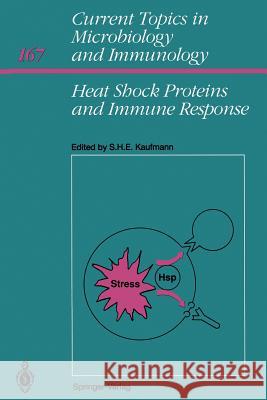Heat Shock Proteins and Immune Response » książka
Heat Shock Proteins and Immune Response
ISBN-13: 9783642758775 / Angielski / Miękka / 2011 / 214 str.
Heat shock proteins are produced when a cell is stressed by various environmental insults. Their omnipresence and extraordinary conservation in function and structure have few, if any, precedence in biology. This volume, containing contributions by well-known experts in the field, summarizes recent progress concerned with the role of heat shock proteins in immunology. Eleven outstanding chapters include topics such as the chaperonin function of heat shock proteins, their role in immunoglobulin assembly and antigen processing, as well as their involvement in inflammation. Due to their widespread distribution and high conservation, heat shock proteins also represent interesting antigens. The T-cell population expressing a gamma/delta receptor may have a particular predilection for heat shock proteins which allows them to identify targets stressed by various assaults. Heat shock proteins may also be central to tumor immunity and to host-parasite interactions. Furthermore, heat shock proteins could provide a link between infection and autoimmunity.











